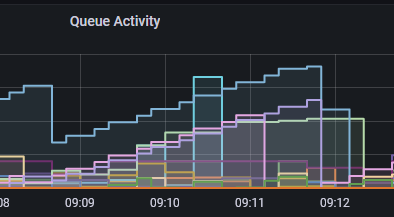UPDATE 2025/06/19: This project has now been released properly to Maven Central.
UPDATE 2025/07/29: The IBM MQ module now appears in the Testcontainers catalog
I have just published a “Tech Preview” of some components needed to simplify testing of Spring Boot applications that use MQ. It uses the Testcontainers framework that many may have heard of, and is intended to make it easy to build temporary resources such as queue managers as part of the test cycle
If you’re interested in looking further, see here. Please leave any comments as issues on the GitHub repository.
This preview is build-it-yourself for now, with the aim being to get feedback before finalising the overall shape and publishing new jars to Maven. It’s also not on the main branch of the ibm-messaging/mq-jms-spring repository, just to keep that clean for now.
Article also published here.
This post was last updated on July 29th, 2025 at 09:03 am



